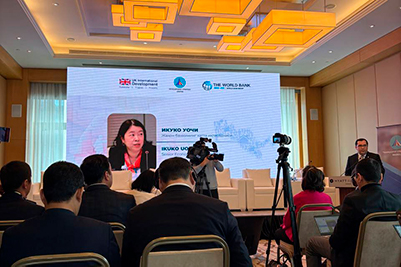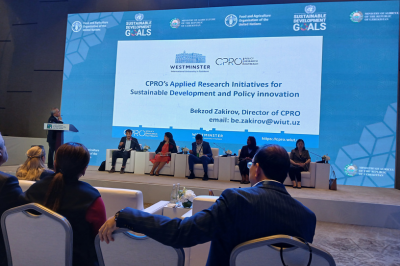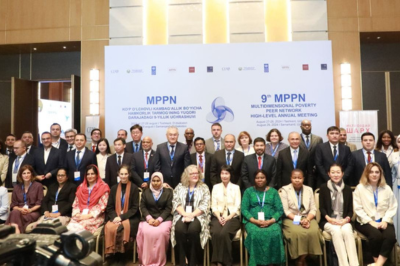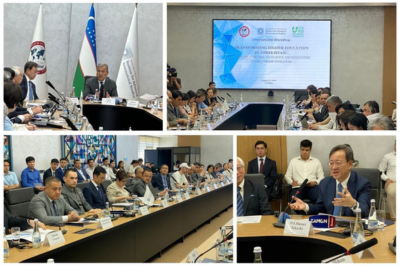On February 26, the World Bank and Development Strategy Center hosted a vital discussion on the latest findings from the Listening to the Citizens of Uzbekistan dataset. Since 2018, this dataset—collected with support from the UK—has provided critical insights into household well-being, covering income trends, food security, employment, and access to public services. On February 26, the World Bank and Development Strategy Center conducted a roundtable discussion on the analysis of listening to citizens of Uzbekistan. The World Bank has been collecting the dataset with the help of the UK since 2018. It measures various indicators of the well-being of respondents residing in households in rural and urban areas, including their income, coping mechanisms, food security, access to employment, and certain public services.
There are a few takeaways from the data analysis on how people responded to changes in recent months.
First, income growth trends. In 2023, the income growth was substantially higher among richer households, resulting in income inequality. Yet, income growth in 2024 became more favourable to poorer families, especially in rural areas, indicating a pro-poor growth pattern. The analysis highlights disparities in income growth among different regions and income groups, with rural poor households experiencing relatively higher income growth.
Second, food security concerns. The data indicates that household food insecurity indicators have remained stable despite economic challenges. The stability in food security metrics suggests effective policy interventions or robustness in this sector despite external pressures.
Third, concerns about price and energy tariffs. With relatively stable inflation, public concern about price levels has declined, suggesting either successful stabilization measures by the government or a lag in the public response to price changes. The impact of energy tariff reforms initiated in May 2024 indicates that while most know the reforms, opinions are divided on the tariff levels. Over 60% of respondents said the increase was unreasonable. The results show that many poorer households require additional support to manage their energy bills. Yet, the households mentioned that after the price increase, the quality of the electricity supply improved with fewer blackouts.
Fourth, public opinion on reforms. The results show that a stable majority of the public believes that the government is effectively engaging in dialogue and that reforms are on the right track. This suggests a positive public perception of current government actions and dialogue regarding political, social, and economic reforms.





